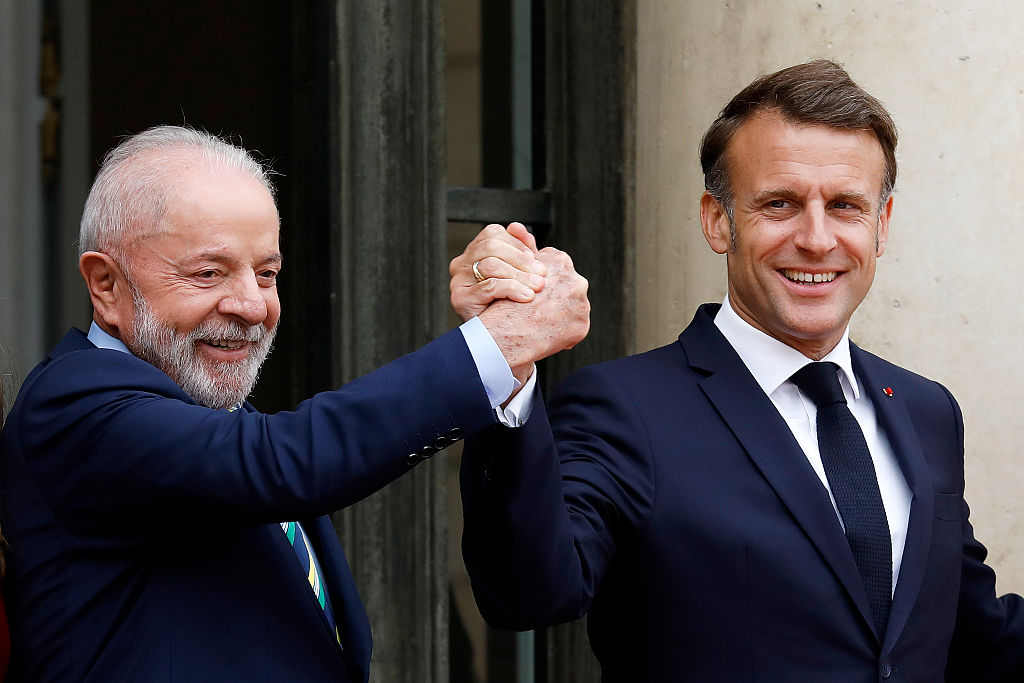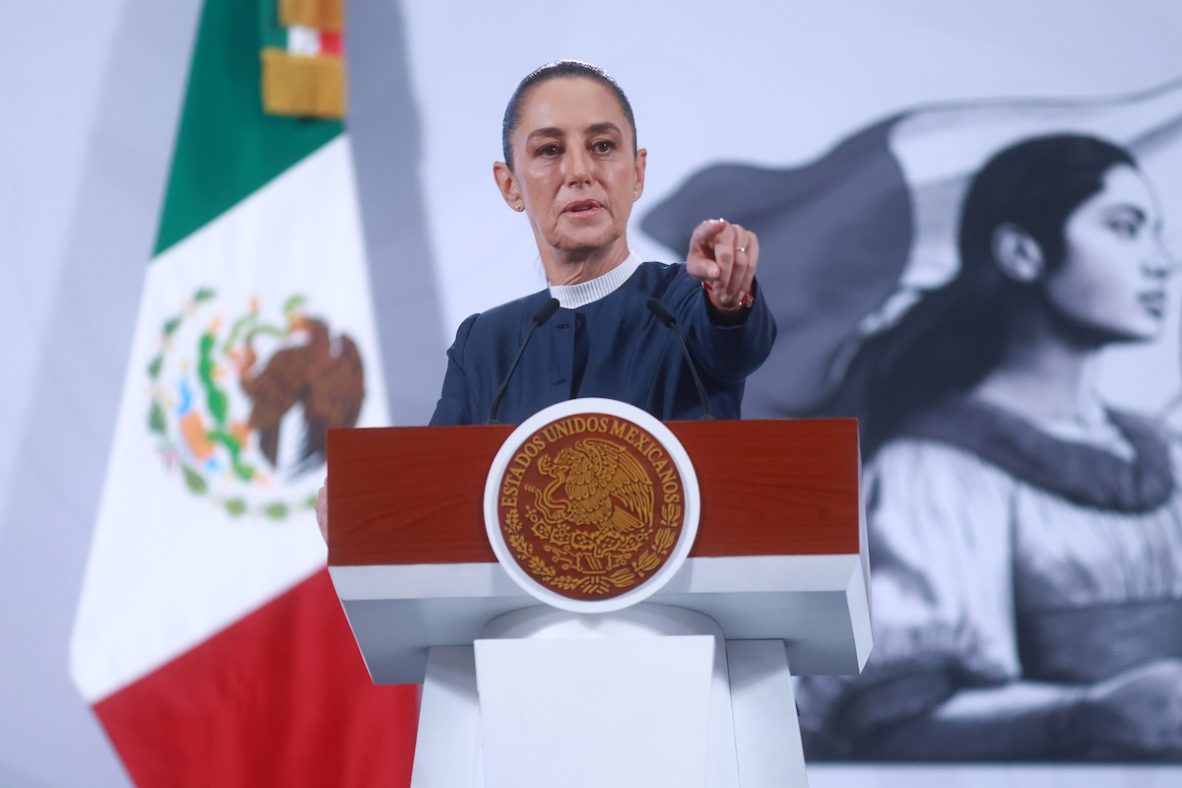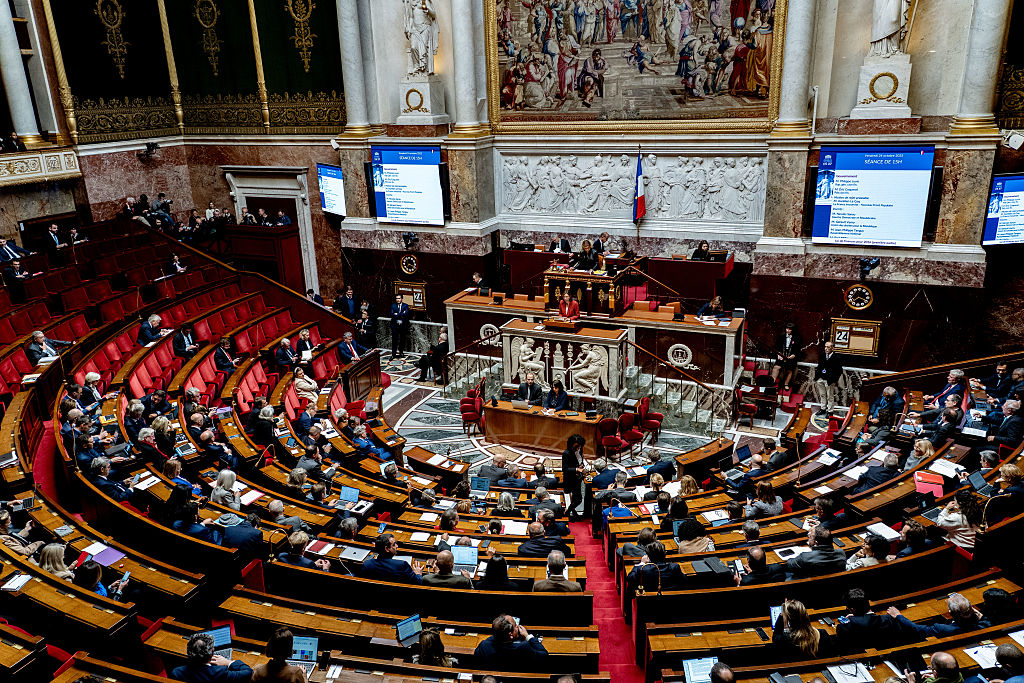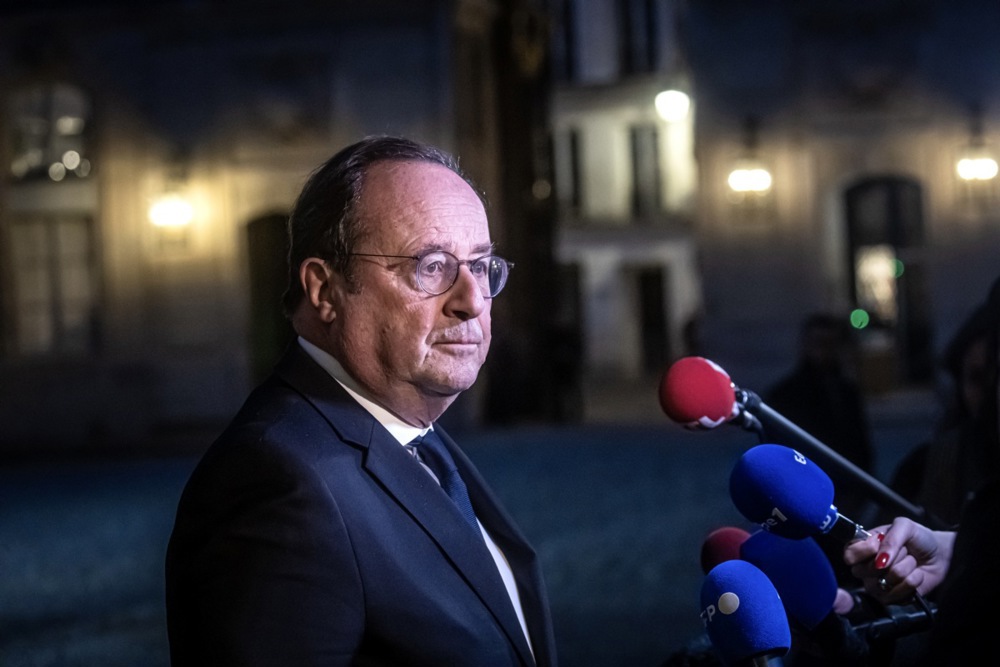French left fractures laid bare as search for new prime minister continues
While the new prime minister is expected to be announced midweek, the left alliance may not survive that long.

The French New Popular Front (NFP) coalition is verging on collapse as parties disagree on engaging in government negotiations while the Elysée eyes a centre-left to centre-right ‘general interest’ coalition.
Tensions are heating up once more between the different parties making up the NFP coalition – bringing together the communists, the greens, the socialists, and the radical left La France Insoumise (LFI/The Left) – as last week’s vote of no-confidence is leaving France in a power vacuum, and unprecedented political instability.
Ex-Prime Minister Michel Barnier lost a confidence vote on Wednesday (4 December), triggered by a decried social security budget bill, when the NFP coalition joined forces with the far right to bring the executive down – forcing him and his government to resign.
Negotiations are reopening to appoint a new political figure to take on France’s most difficult political job and unite an ever-fragmented parliament. The 2024 snap legislative elections have left the National Assembly split into three blocs: the left, centrists and the far right – none of which have an absolute majority.
‘I want to govern’
French President Emmanuel Macron said in a televised address on Thursday that the new prime minister will put together a “tight” government of the willing, bringing together parties that would “either take part in it or vow not to censure it. ” Macron called for a new way to do politics.
A new centre-left to right-wing coalition format, akin to the ‘central’ majority that prevails at the European Parliament, has caused a stir on the left side of the aisle over the best strategy to adopt in future government negotiations – raising the spectre of an NFP collapse.
The socialists—who held the highest office under François Hollande (2012-2017) and François Mitterrand (1981-1995)—said they are willing to consider compromising on key policy issues with Macron’s troops and the conservatives, and they met with Macron on Friday (6 December).
“We must talk about the conditions under which we can move forward,” party chief Olivier Faure said last week, so long as a left-leaning prime minister is appointed and the far right does not take part.
This may include revisiting the left’s staunch opposition to the 2023 pensions reform and opening the way to a new immigration bill early in the new year. “I don’t want to standby and protest and resist: I want to govern,” Faure added.
Communists and the Greens, though more tight-lipped, have remained open to entering into negotiations “to defend our programme, one issue at a time,” Greens boss Marine Tondelier said on Monday (9 December) after an Elysée meeting.
France: EU files the left coalition agrees on – and those it could divorce over
The left-wing Nouveau Front Populaire (NFP) coalition, the relative winner of France’s snap legislative elections,…
5 minutes

LFI’s fury
Their allies’ recent statements have thrown LFI into a fury, who have accused their allies of treason. Socialists’ behaviour is “disloyal and deadly,” radical left figurehead Jean-Luc Mélenchon wrote in a blog post on Sunday.
He rejected Macron’s invitation to meet in the Elysée, and refused to engage in any coalition talks, citing “rotten compromises” that would amount to a betrayal of left voters, and mark the end of the NFP. He added that this would weaken the overall opposition to Macron, whom he wanted to see impeached and hold new presidential elections.
The president’s refusal last summer to appoint the alliance’s prime minister pick, political rookie Lucie Castets, did away with any hope that LFI would be open to negotiations.
“Those who think something can be done with Macron’s troops, at the price of turning their back to the NFP, are making a mistake,” LFI EU lawmaker Manon Aubry warned.
It is not the first time the left alliance has threatened to collapse. The coalition, which first emerged before the 2022 legislative elections (then known as ‘the Nupes’), sought to unite left-leaning forces around a shared programme and build a structured opposition in the National Assembly.
Alas, policy differences were so great that ‘the Nupes’ was practically dysfunctional a year in. LFI faced headwind accusations of antisemitism after hesitations to call the 7 October Hamas attacks terrorist – a stance they eventually reversed – and on all things Europe, defence, and foreign policy, they shared little with their green and socialist counterparts. By the June European elections, the parties had run separate campaigns.
The coalition eventually rose from the dead during the snap legislative elections and secured the highest number of seats in the Assembly in July – only to disagree again on government coalition talks.
“The breakup is there […]. We are not here to serve chaos engineers and Mélenchon’s personal destiny,” social democrat MEP Raphaël Glucksmann (S&D) said on Monday.
The new prime minister’s name is expected to be announced in midweek, but the left alliance might not survive that long.
[Edited by Martina Monti]









